Fungal Terrain & Cancer: How Fungi, Metabolism, and Immunity Interact
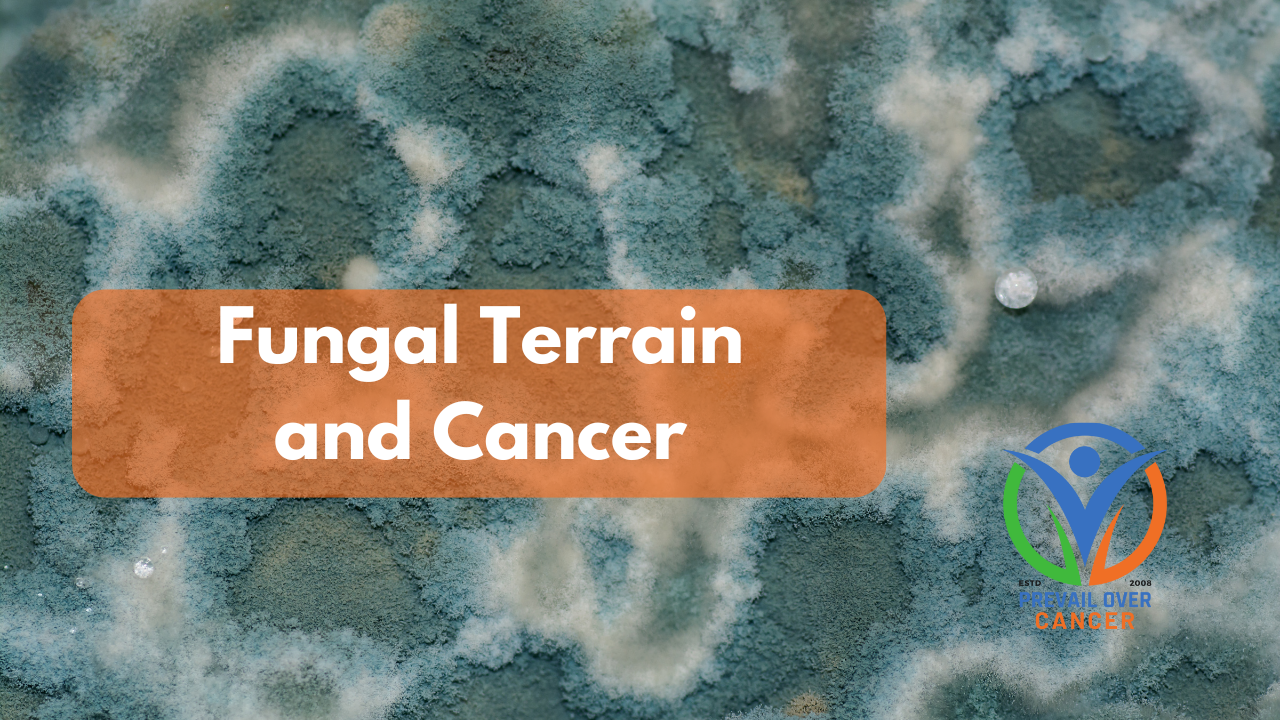
Understanding fungal DNA in cancer tumors, terrain imbalances, antifungal foods, and how metabolism shapes fungal behavior in the body.
Researched and written by Keith Bishop, Clinical Nutritionist, Cancer Coach, Retired Pharmacist, and Founder of Prevail Over Cancer and the Prevail Protocol.
Why Fungi Are Being Found in Human Tumors
Large sequencing studies have confirmed that low-abundance fungal DNA and fungal cells appear across multiple cancer types — including breast, lung, GI, melanoma, and gynecologic tumors. These findings do not indicate infection and do not establish fungi as carcinogens. Instead, they highlight fungi as ecological participants within the tumor microenvironment.
- The Cell pan‑cancer analysis identified cancer‑type-specific fungal signatures, often co-occurring with distinct bacterial communities and immune phenotypes.
- A second Cell study confirmed the presence of fungi in GI and lung tumors and demonstrated associations with immune infiltration...
GLP 1, Metabolism, and Cancer: What the Research Really Shows About Risks, Benefits, and Natural Support
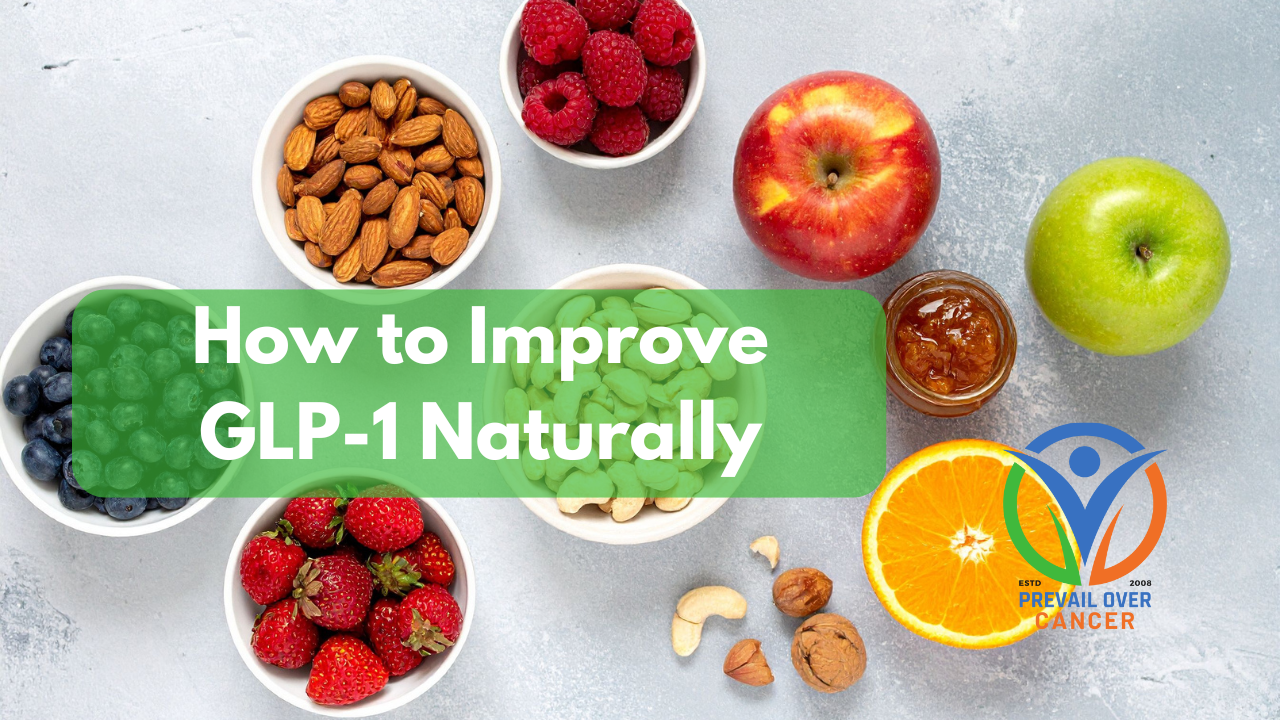
A science-based look at how GLP-1 hormones influence metabolism, inflammation, and cancer-related pathways—plus natural strategies to support your body’s own GLP‑1 production.
Written and researched by Keith Bishop, Clinical Nutritionist, Cancer Coach, Integrative Cancer Educator, Retired pharmacist, and founder of Prevail Over Cancer™ and the Prevail Protocol™.
GLP‑1, Metabolism, and Cancer
GLP-1 has become one of the most widely discussed hormones in modern health, largely because of medications like semaglutide and tirzepatide. But long before these drugs existed, your body was already producing GLP-1 naturally.
And here’s the part most people don’t realize:
GLP‑1 doesn’t just influence appetite and blood sugar—it also affects inflammation, insulin signaling, immune function, and cancer-related metabolic pathways.
This blog breaks down:
- What GLP-1 does
- How to support it naturally
- What current research says about GLP‑1 and cancer
- Which cancers show potential benefit
- Whic ...
Why Processed Foods Increase Cancer Risks
Processed food’s carbohydrates and fats increase your body’s production of cancerous Methylglyoxal.
Written by Keith Bishop, Clinical Nutritionist, Cancer Coach, and Retired Pharmacist
Processed foods are a staple in many diets, but have hidden dangers that could significantly impact your health. One such danger is methylglyoxal, a by-product of glucose metabolism. Recent research has uncovered a concerning link between methylglyoxal and an increased risk of cancer.
What is Methylglyoxal?
Methylglyoxal is produced when our cells break down glucose to release energy. While it's a natural by-product, excessive levels can be harmful. Diets high in processed foods, often rich in carbohydrates and unhealthy fats, can increase methylglyoxal production.
The Cancer Connection Studies have shown that high levels of methylglyoxal can inhibit genes that protect against cancer, such as BRCA2. This inhibition can damage DNA and increase the likelihood of cancer development.
The typical Weste...
Modified Citrus Pectin, PectaSol & Cancer: How a Simple Citrus Fiber May Influence Cancer Biology
Understanding what Modified Citrus Pectin (MCP) Pectasol-C® is, how it interacts with galectin‑3 and cancer, what the research shows, and what patients should know about safety, interactions, and integrative oncology considerations.
What Is Modified Citrus Pectin?
Modified citrus pectin (MCP), Pectasol-C, is a form of pectin derived from the peel and pulp of citrus fruits. Unlike regular pectin—which is too large to be absorbed—MCP is processed into smaller, low‑molecular‑weight fragments that the body can absorb more easily.
MCP is rich in galactoside residues, which give it a unique ability to bind to certain proteins involved in cancer biology, especially galectin‑3.
Pectasol-C® is a brand of MCP.
How MCP May Influence Cancer Biology
Much of MCP’s anticancer interest comes from its ability to bind and block galectin‑3, a protein involved in:
Galectin‑3 is overexpressed ...
Pumpkin Seeds and Cancer: Evidence-Backed Benefits You Should Know
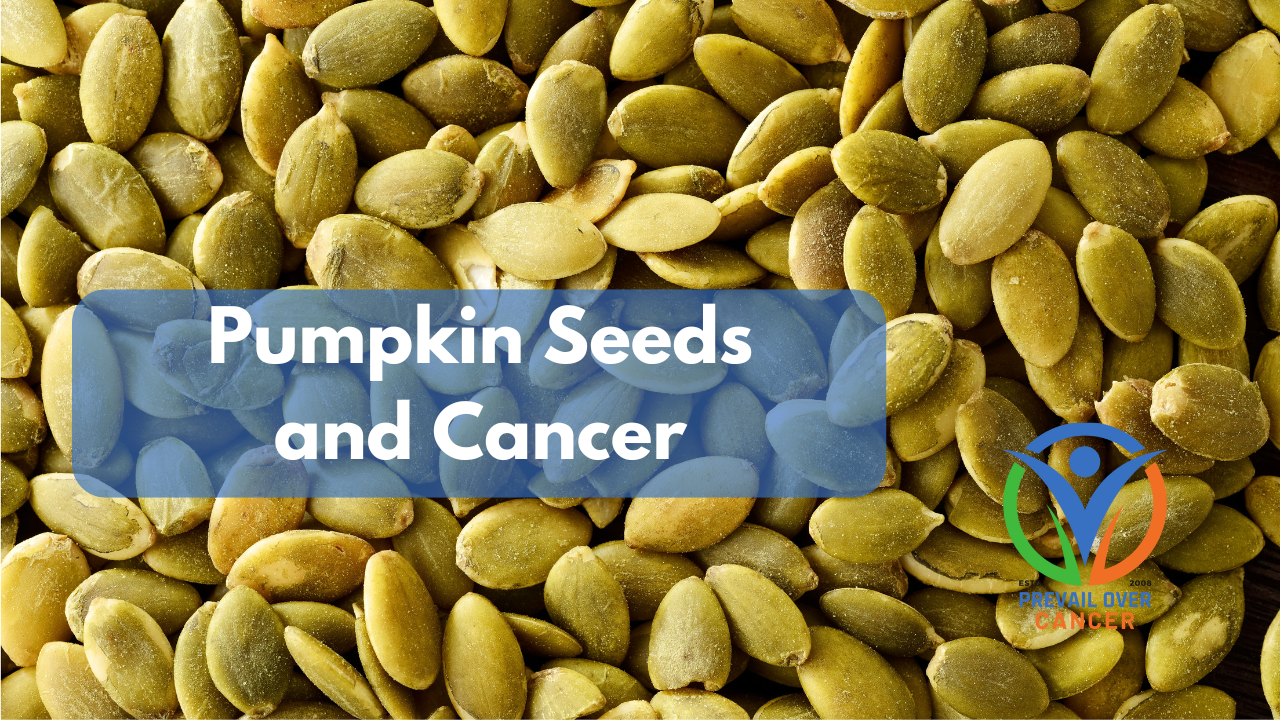
How pumpkin seeds support anticancer nutrition, key nutrients, research findings, and practical guidance.
Research and written by Keith Bishop, Cancer Coach, Clinical Nutritionist, Retired Pharmacist, and Founder of Prevail Over Cancer™ and the Prevail Protocol™
Pumpkin seeds—often treated as a simple snack—are quietly becoming one of the most compelling foods in anticancer nutrition. Rich in bioactive compounds, antioxidants, lignans, and unique proteins, these seeds have demonstrated promising effects in laboratory studies and population research. Below is a comprehensive, evidence-based look at what we know so far.
Anticancer Actions of Pumpkin Seeds
Pumpkin Seed Apoptosis-Inducing Activity
Pumpkin seed protein fractions have been shown to induce apoptosis (programmed cell death) in cancer cells, including liver (HepG2) and triple-negative breast cancer (MDA-MB-231) cell lines.[i]
Antioxidant & Anti-Inflammatory Effects
Pumpkin seeds contain phenolic compounds, tocopherol...
IV Vitamin C for Cancer: Mechanisms, Dosing, Safety & Clinical Use
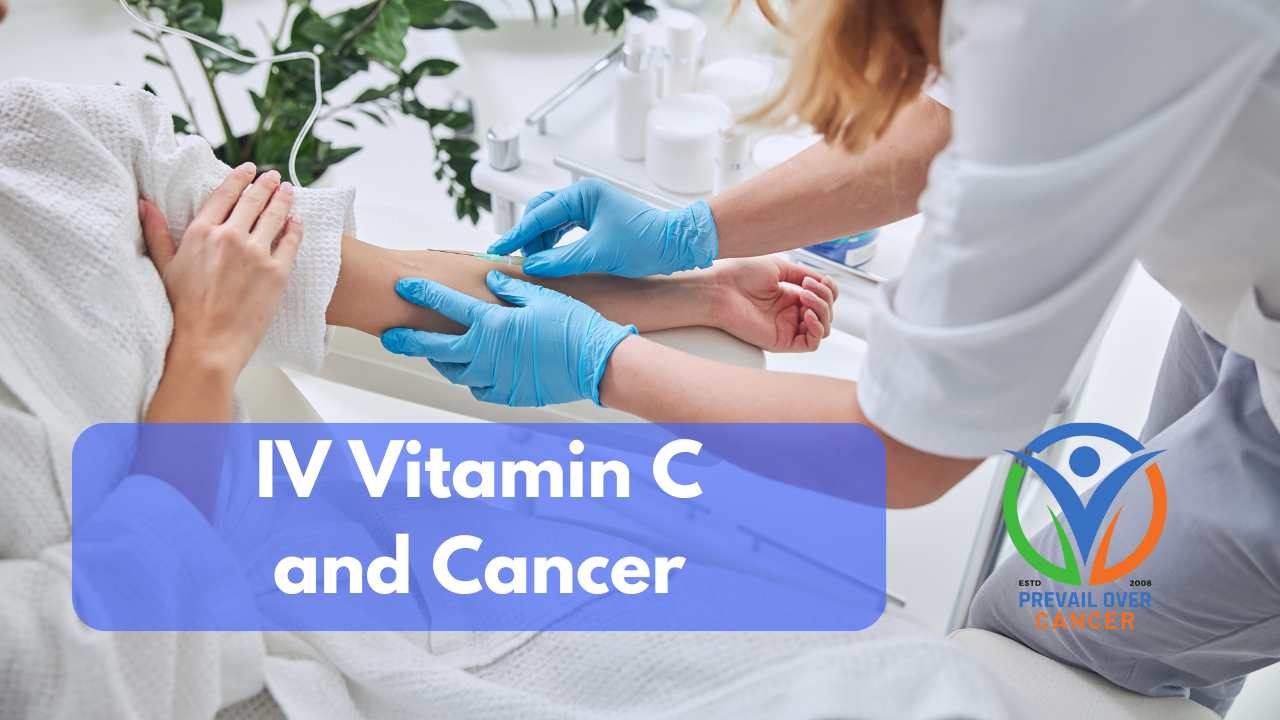
The Anticancer Actions of IV Vitamin C: Mechanisms, Dosing, Safety Labs, and Integration with Oncology Care
Researched and written by Keith Bishop, Clinical Nutritionist, Cancer Coach, and Founder of Prevail Over Cancer™, and the Prevail Protocol™
High-dose intravenous vitamin C (IVC) has reemerged as a promising adjunctive therapy in integrative oncology. Modern research highlights its unique pharmacology, potential anticancer mechanisms, and its ability to support patients undergoing chemotherapy, radiation, and immunotherapy. This guide breaks down the science, dosing considerations, safety labs, and clinical integration—supported by peer-reviewed medical literature.
What Makes IV Vitamin C Different From Oral Vitamin C?
Oral vitamin C absorption is tightly limited by intestinal transporters, which cap blood levels even at high doses. In contrast, IV administration bypasses intestinal absorption and produces blood concentrations 100–500× higher than those required for a...
How Much Coffee Fights Cancer? Evidence‑Based Benefits Explained
Does Coffee Protect Against Cancer? A Deep Dive into the Studies and Controversies
Researched and Written by Keith Bishop, Clinical Nutritionist, Cancer Coach, Retired Pharmacist, and Founder of Prevail Over Cancer
Coffee appears to have some significant cancer-fighting benefits.👏👏👏 According to 📚medical research, coffee is associated with a reduced risk of cancer. There’s even a study that found higher coffee consumption is associated with reduced mortality from colorectal cancer.
Several compounds found in coffee possess antioxidant, anti-inflammatory, and insulin-sensitizing effects, which may contribute to anticancer activity.
In most studies, 3 ☕️☕️☕️ or more cups daily provide better protection than 1 cup daily. If you are sensitive to caffeine, you may have to limit your consumption, dilute the coffee, drink early in the day, or switch to naturally decaffeinated. Naturally decaffeinated coffee will not have as many beneficial anti-cancer ingredients.
The strongest anticanc...
Allulose and Cancer: How Metabolic Sweeteners Influence Cancer Metabolism
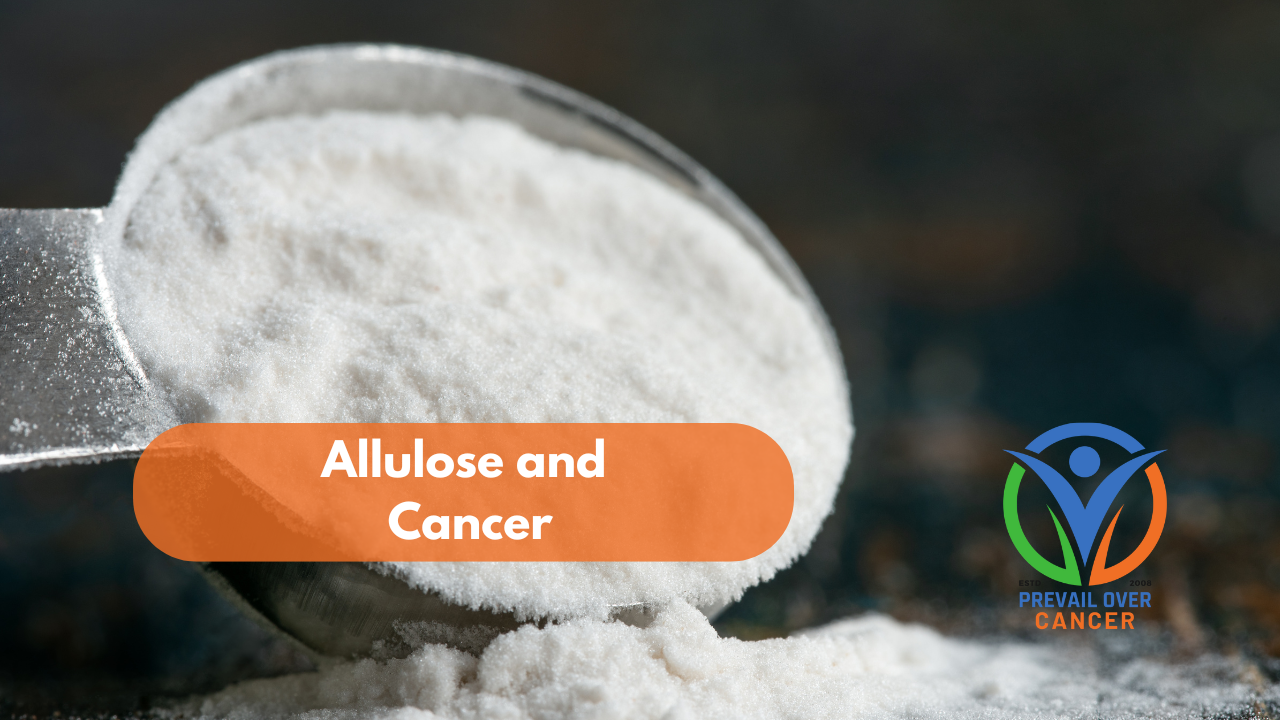
A science-backed breakdown of allulose, xylitol, and other metabolic sweeteners — and how they shape glucose, insulin, oxidative stress, and the metabolic terrain that affects cancer growth.
"Allulose and Cancer” Is Becoming a Key Question
Researched and written by Keith Bishop, Integrative Cancer Educator, Clinical Nutritionist, Cancer Coach, Founder of Prevail Protocol™ and Prevail Over Cancer™, and Retired Pharmacist
Cancer cells rely heavily on glucose uptake and glycolysis, even when oxygen is available — the hallmark Warburg effect.[i] Because of this metabolic preference, sweeteners that raise glucose and insulin can create a terrain more favorable to cancer progression, while sweeteners that stabilize metabolic pathways may support better outcomes.
Among all sweeteners, allulose is emerging as one of the most metabolically unique, with early research suggesting potential relevance to cancer metabolism.
This article provides a deep, evidence-based look at allulose and ca...
Daily Intermittent Fasting and Cancer: How Time-Restricted Eating Can Influence Cancer Cell Growth and Reduce Risk
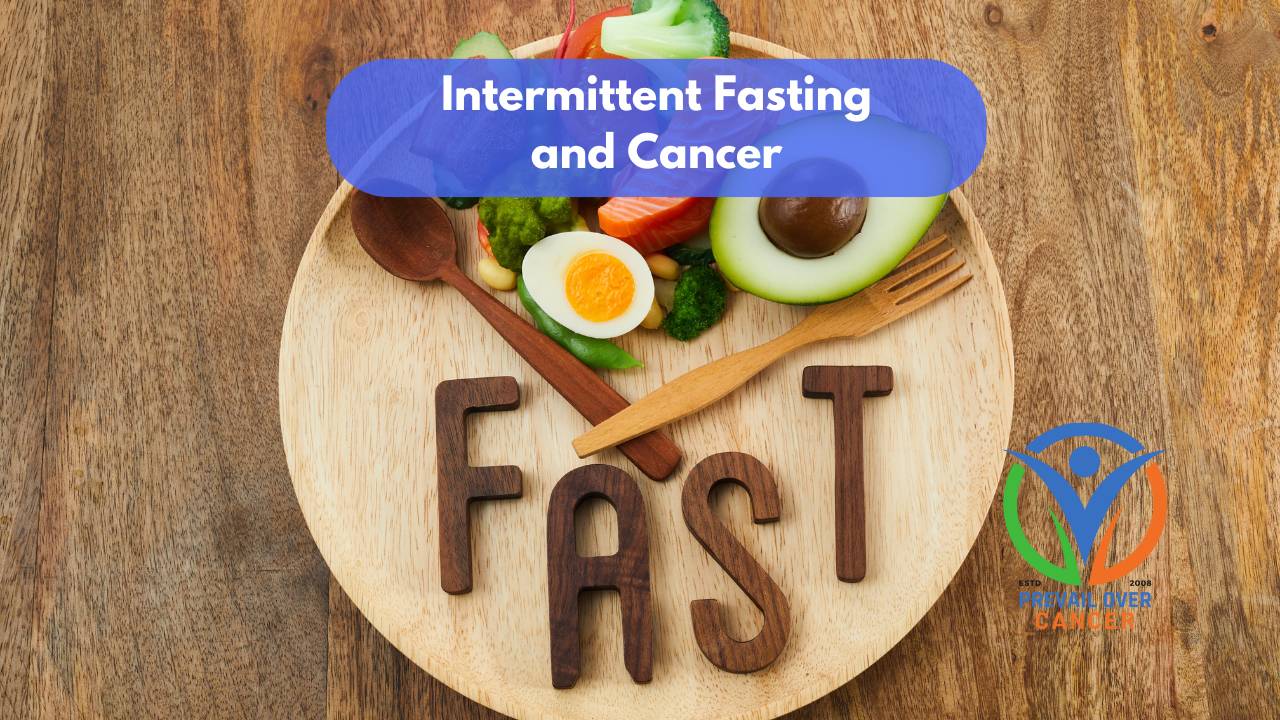
Emerging research shows that intermittent fasting may reshape metabolic pathways, lower growth signals, and create conditions that make cancer cells more vulnerable. Here’s what the science says.
Researched and written by Keith Bishop, Integrative Cancer Educator, Clinical Nutritionist, Cancer Coach, Retired Pharmacist, and Founder of the Prevail Protocol™ and Prevail Over Cancer.
Daily Intermittent Fasting and Cancer: What Science Really Shows
Intermittent fasting (IF) has moved from a weight‑loss trend to a serious area of oncology research. Scientists are now exploring how fasting windows—often 14 to 18 hours—may influence cancer risk, cancer cell metabolism, and even treatment response. While IF is not an official cancer treatment, emerging evidence suggests it may help create a metabolic environment that is less favorable for cancer development and progression.
Below, we break down what the research shows about daily intermittent fasting, its potential impact on cancer b...
T Cells: The Body’s Front Line Cancer Fighters — And How to Support Them Naturally
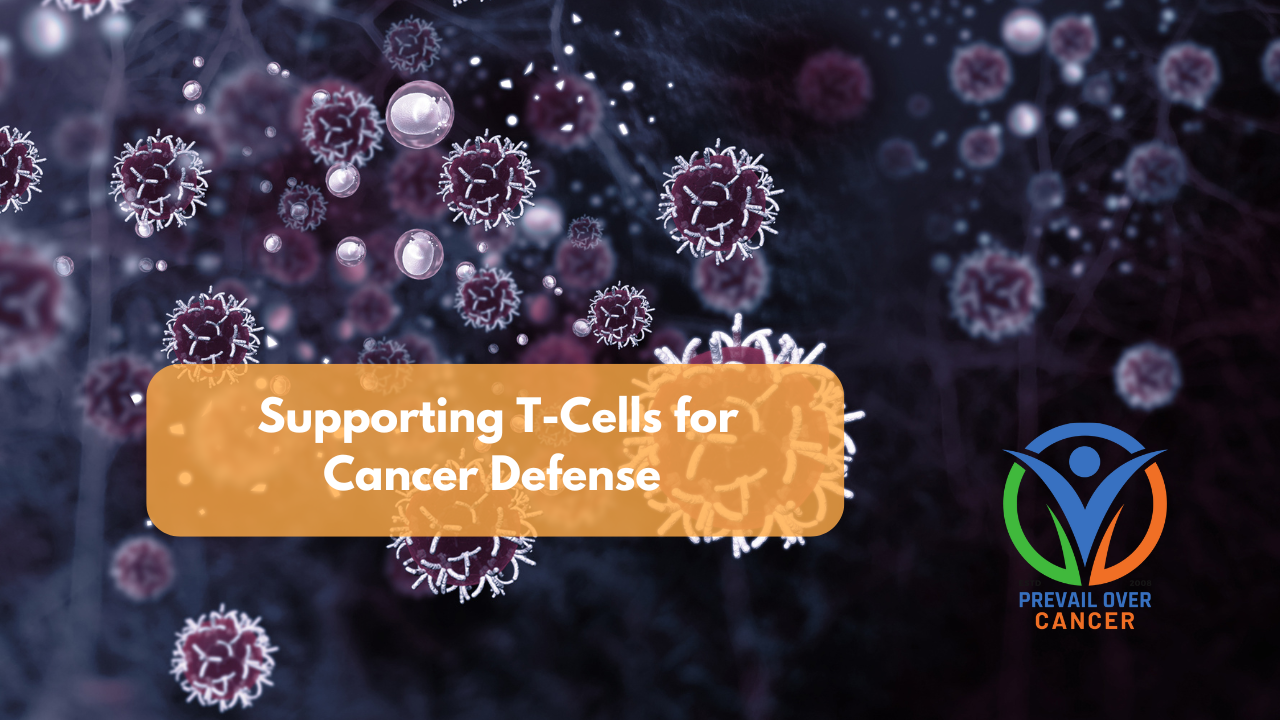
How T‑cells detect and destroy cancer cells, how immunotherapy strengthens them, and what lifestyle, nutrition, supplements, and repurposed medications may support healthy T‑cell function.
Researched and written by Keith Bishop, Integrative Cancer Educator, Cancer Coach, Clinical Nutritionist, Retired Pharmacist, and Founder of Prevail Over Cancer.
Why T‑Cells Matter More Than Ever in Cancer Defense
Over the last decade, T‑cells have become the centerpiece of modern cancer treatment. Immunotherapies such as checkpoint inhibitors, CAR T therapy, and cancer vaccines all work by activating or enhancing T cell function. This is because T‑cells are the immune system’s precision-guided assassins, capable of identifying and destroying cancer cells with extraordinary specificity.
A central review on T cells and cancer immunology emphasizes that T cells are the primary drivers of antitumor immunity, orchestrating both direct killing and broader immune coordination.[i] Without effective T‑ce...



